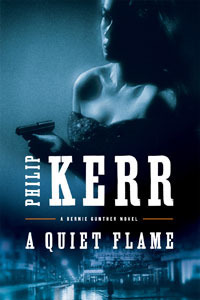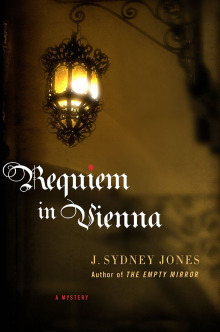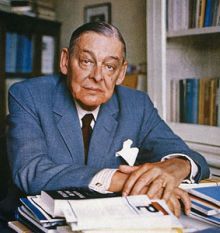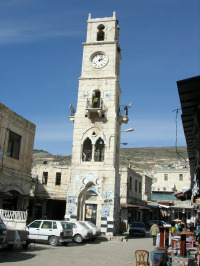Matt Rees's Blog - Posts Tagged "berlin"
Berlin Noir on NPR

Last year, NPR correspondent Eric Westervelt toured Nablus in the West Bank with me, talking about my third Palestinian crime novel THE SAMARITAN'S SECRET as we wandered through the ancient casbah. Sadly for the many of us in Jerusalem who enjoyed his dry wit, Westervelt has left the Middle East for a new posting in Berlin. But we can still listen to his radio pieces, which he prepares with an ear for colorful sound that's truly distinctive. He hasn't quit the world of crime fiction, either. This week, he features Philip Kerr's excellent series about a German detective in Berlin during the 1920s and 1930s, and an intriguing piece it is.
Published on August 14, 2009 04:37
•
Tags:
berlin, crime, fiction, historical, journalism, kerr, npr, philip, samaritan-s, samaritans, secret
From Hitler History to Mahler Mystery: J. Sydney Jones’s Writing Life
 Some authors exude the pleasure of reading and writing (and, believe me, when you meet them, you’d be surprised how many just don’t.) J. Sydney Jones is such a writer, with a breadth of writing experience in an array of genres that’s highly impressive and carries with it an obvious love of his craft. His Viennese Mystery series is a fascinating way to delve into one of Europe’s loveliest, most cultured cities – and damned entertaining, too. He’s also the man behind a great new blog Scene of the Crime, which focuses on the role of place in crime fiction – check out Syd’s interview with Berlin noirmeister Philip Kerr. Here Syd discusses his career and his ideas about writing.
Some authors exude the pleasure of reading and writing (and, believe me, when you meet them, you’d be surprised how many just don’t.) J. Sydney Jones is such a writer, with a breadth of writing experience in an array of genres that’s highly impressive and carries with it an obvious love of his craft. His Viennese Mystery series is a fascinating way to delve into one of Europe’s loveliest, most cultured cities – and damned entertaining, too. He’s also the man behind a great new blog Scene of the Crime, which focuses on the role of place in crime fiction – check out Syd’s interview with Berlin noirmeister Philip Kerr. Here Syd discusses his career and his ideas about writing.How long did it take you to get published?
I started out in journalism, so I had a sense of accomplishment right off, publishing my travel pieces in newspapers and magazines all over the place. Books are a different animal, but again I went with travel first and had some good early success with walking, hiking, and cycling guides. I wrote eight novels, though, before I got my first one, Time of the Wolf, published.
With the current “Viennese Mystery” series, things were easier. I had a bit of an author platform with several well-received books about Vienna and an agent who is most savvy. First query landed us the book deal.
Would you recommend any books on writing?
Tried and trusted here: you can look a lot further and do a lot worse than E.M Forster’s Aspects of the Novel. Another classic is Percy Lubbock’s The Craft of Fiction. These will not be everyone’s cup of tea, but I just love the erudite discussions in both.
What’s a typical writing day?
I get to work about nine in the morning after I drop my son off at school. I try to devote the first hours of the writing day to the current fiction project--currently the fourth book in the Viennese Mystery series. Then some exercise--tennis, if I am lucky--and lunch, followed by more mundane freelance stuff in the afternoon that also helps to pay the bills.
Plug your latest book. What’s it about? Why’s it so great?

Each of the books in the Viennese Mystery series features a famous historical figure of Vienna 1900. Requiem in Vienna focuses on musical Vienna: the composer Gustav Mahler is the target of an assassin and my protagonist, the lawyer and private inquiries man, Karl Werthen, is hired to protect him. The books are a blend of historical whodunit and literary thriller with more than a dash of historical/cultural/food lore thrown in.
Here’s what a Kirkus Reviews critic had to say of the current series installment: “Sophisticated entertainment of a very high caliber.”
How much research is involved in each of your books?
There are decades of research in the books. Explanation: I started researching Vienna 1900 long ago for my book, Hitler in Vienna. Since then I have continued to read heavily in the period, but for each book I still need to bone up on the historical folks I am featuring. Some writer once said that research was sort of like writing without the creative sweat. I enjoy the research; I probably commit about three months to each before I even begin the plotting. And thank whomever for the Internet--I can even get full editions of Viennese papers of the time online.
Where’d you get the idea for your main character?
Karl Werthen is a successful lawyer and sometimes inquiry agent, an assimilated Jew, and a distinct Viennophile. And I haven’t got a clue to where he comes from, other than a shared love for Vienna. He just appeared full-formed on the first page of The Empty Mirror, the initial in the series. A minor character, he elbowed his way to the forefront by the end of the first draft; the series concept actually had the real-life father of criminology, Hanns Gross, as the protagonist. A crusty old curmudgeon, Gross tugs Werthen away from his safe wills and trusts gig back into criminal law in that first one, to prove the artist Gustav Klimt innocent of murdering his model. But it just worked out so much better to use Werthen as my lead and Gross, the pompous pro, as the sometimes sidekick.
What’s your experience with being translated?
Somewhat odd. For example, my Hitler in Vienna was first published in Germany. I originally queried publishers there in German, and it was bought sight unseen (Hitler, at the time, was a hot topic). When they received my doorstopper of a manuscript in English and realized it needed to be translated, they were none too pleased. But they sucked it up and published anyway.
Then when trying to sell the English-language rights, I had a hell of a time convincing editors in England and the U.S. that no, they would not have to have the book translated. I already had the English original of the manuscript.
What books have influenced you?
As a young man I loved the lyricism of Steinbeck. Lee from East of Eden is still one of my favorite fictional characters. And of course there was Hemingway and Fitzgerald. Then during the almost twenty years I lived in Vienna, I became an avid reader of nineteenth- and twentieth-century British authors. Blame it on the British Council. A wonderful resource in its day with massive armchairs around a humming ceramic stove. Thomas Hardy became my literary hero; I open one of his novels and begin reading his scene-setting on some desolate heath in the south of England, and I get actual chills. The language just works for me. And Conrad. Don’t even get me started on Conrad--and the bugger wrote in a second language! A guilty pleasure also became the works of J.B. Priestley, especially his Good Companions.
Did these books influence my writing? Who knows, but they surely have made my life fuller. Le Carre, of course, pushed me in new ways with dialogue and plot, as did the early fiction works of Paul Theroux (Saint Jack, Picture Palace). I wish I could make my dialogue sparkle and crack they way those guys do. But this catalogue could go on for some time. Basta.
Thanks, Syd. Fascinating insights.
Thanks for the opportunity to chat, Matt.
Published on February 18, 2010 02:11
•
Tags:
aspects-of-the-novel, austria, berlin, berlin-noir, crime-fiction, e-m-forster, exotic-fiction, fitzgerald, gustav-mahler, hemingway, hitler, interviews, j-sydney-jones, john-le-carre, joseph-conrad, karl-werthen, matt-beynon-rees, paul-theroux, percy-lubbock, philip-kerr, requiem-in-vienna, scene-of-the-crime, steinbeck, the-craft-of-fiction, vienna, writing-life
Stealing the novel
 If there’s one thing that authoring a series of novels will teach you, it’s that you can’t wait for inspiration. But you can prompt it, give it little electric shocks that’ll keep it bubbling within you. Here are a few methods I use to do that.
If there’s one thing that authoring a series of novels will teach you, it’s that you can’t wait for inspiration. But you can prompt it, give it little electric shocks that’ll keep it bubbling within you. Here are a few methods I use to do that.I go to the places I’m writing about. I talk to people who might be similar to (or even the basis for) my characters. I read about them and their world. I engage in the same activities in which they specialize. But I also read about entirely different subjects – so long as they’re extremely well-written.
Some of these ideas sound self-evident. I’ve written a series of Palestinian crime novels, so it stands to reason that I’ve spent the last decade and a half in Gaza, Bethlehem, Nablus, Jerusalem, tasting and smelling and talking and looking. I even force myself to read the drivel that gets written about this place in journalism and nonfiction—occasionally I come across something good, but mainly it just gets me down. How many times can you listen to a mediocre pop song? Well, that’s how most Middle East journalism sounds in my ear.
For a novel I have coming out next year about Mozart, I learned to play the piano. I learned that I wasn’t much good at it, but I also saw inside the music in a way I couldn’t have done merely by listening.
Not so obvious, however, might be the wide reading. A number of writers I’ve met or read about say they don’t have time to read anything that isn’t directly related to their research. In other words, if I’m writing about Berlin, it’s goodbye to Raymond Chandler for the next 12 months.
Well, T.S. Eliot wrote that “Immature poets imitate; mature poets steal.” I can look back at my literary efforts as an undergraduate and see what imitation there was throughout all of it. Now I’m mature (I try to fight it; I work out; but I concede, I’m maturing…) and I’ve figured out how to steal.
What Eliot meant was that it takes a while, as a writer, to realize how to make things your own. That means going beyond the plagiaristic imitation of youth, which is humble and filled with homage, to the confident sense that whatever you see another writer do, you can do it better. Then when you read something good, it doesn’t appear in your work as the same thing—it spurs you to develop your own spin on the thought that’s provoked in you by what you’ve read.
Let me give you an example. I challenge any one of you to show me a contemporary writer who can build a character in a fuller, more convincing manner than Hilary Mantel, who won the Booker Prize last year for her masterful “Wolf Hall.” If anything, her 1992 classic “A place of Greater Safety,” a novel about the French Revolution, is even more amazing than her now-famous prize-winner.
“Greater Safety” tells the story of the entire revolution through the characters of Robespierre, Danton and Desmoulins. From their childhoods to (it’s a historical novel so I don’t have to give any spoiler alerts) their executions. Each of them is built slowly, and we see their character arc in a way that even they don’t—watch their idealism tainted with violence, until it turns on them. Because we take that journey with them, we care more deeply for them, even as they become murderous and unjust.
The “stealing” comes in whenever I see a point that Mantel uses to build that empathy. Robespierre, we learn, always carries a tiny copy of Rousseau in his pocket. Some time later it’s on his desk and Desmoulins notices it. Just one sentence. A couple hundred pages later someone quotes Rousseau against him and only his close friends understand that he’s entirely defeated. We know he’s a man who has bent principles for his friend Desmoulins, but he can’t desert them completely. It’s a choice between Desmoulins, whom he loves, or the book that he keeps close to his heart. Books always win in contests like that.
That doesn’t make me want to replicate the exact same thing in my next book – that’s what I might’ve tried when I was 19. Instead, I think of ways in which to send a signal to the reader. To plant an object that inspires a character, that takes them on the path on which we follow them in the novel. Until ultimately it underlies their collision with another character; makes compromise an impossible undermining of everything they believe about themselves.
That’s stealing, and it’s a good thing to do.
You can find such moments in the small factoids of history books, if you’re researching a period, or in nonfiction. It’s in poems, where a phrase about a frieze on an urn (“Thou still unravished bride of quietness”) will spark a thought about your memories of your own wedding or of a sexual exploit which you can use for a character in your book.
A writer whose obvious focus is character would be the most direct place to start. In other words, not the kind of ultra-bland snoozing that appears in the short fiction of The New Yorker, which always seems to be written as though it were designed to mimic a relatively dull person telling you a story in a cocktail party or at the counter of a bodega.
Choose something with sweep, like Mantel. Someone with an eye for a mordant detail, like Graham Greene in “The Honorary Consul.” Someone who shows you an entire, devastated culture through the eyes of one man, like Martin Cruz Smith’s investigator Arkady Renko.
A novel’s like a marathon. Stop and sit down at the side of the road and no amount of sprinting will get you to the finish line. You have to write every day and once you’re started you can’t stop. “Stealing” is a way of warming up for the long run.
Published on April 15, 2010 00:12
•
Tags:
a-place-of-greater-safety, berlin, bethlehem, booker-prize, crime-fiction, danton, desmoulins, gaza, graham-greene, hilary-mantel, historical-fiction, israel, jerusalem, martin-cruz-smith, middle-east, mozart, nablus, novels, palestine, raymond-chandler, robespierre, t-s-eliot, wolf-hall, writing
Cheers for Hitler, and Brits go home
 The company you keep can put the culture around you in a new light, let you see it as you haven’t before.
The company you keep can put the culture around you in a new light, let you see it as you haven’t before.That’s true when I travel to different countries and discover that readers in Germany have a particular take on my Palestinian crime novels which differs from the way they look to Americans, for example.
I got to thinking about this when I was wandering the Nablus casbah this week with two German friends. An enthusiastic Palestinian fellow asked me to explain to them how much he appreciated Hitler, and as an afterthought he noted that all his people’s problems are caused by me and my compatriots from the British Isles.
I had just climbed up the old Turkish clocktower in Manara Square at the heart of the casbah with one of the Germans. I’d never seen the door at the bottom open before, but there was a policeman inside on this occasion and he generously allowed us to go up the ladder. On the first balcony, I stepped through more pigeon feces than I’d have thought could possibly gather in one place. It was crusty for an inch or two, then a little slushy beneath. I had a grin all over my face of the kind that tends to appear there when I discover a new corner in a place I’ve often been – and loved being there – before.
Read the rest of this post on my blog The Man of Twists and Turns.
Published on June 17, 2010 01:33
•
Tags:
barry-unsworth, bedouin, berlin, crime-fiction, damascus, dehaisha-refugee-camp, george-w-bush, germany, hamas, hitler, imperial-camel-corps, jerusalem, middle-east, nablus, omar-yussef, ottomans, palestine, palestinians, the-rage-of-the-vulture, the-samaritan-s-secret, tony-blair, turkey, wales



